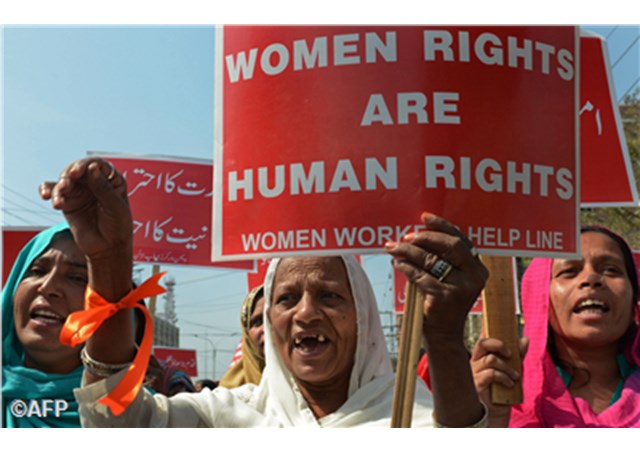
Head of UN Women: No country has reached gender equality

The head of the United Nations agency promoting equality for women is lamenting that a girl born today will be an 81-year-old grandmother before she has the same chance as a man to be CEO of a company _ and she will have to wait until she's 50-years-old to have an equal chance to lead a country. Twenty years after 189 countries adopted a blueprint to achieve equality for women, Phumzile Mlambo-Ngcuka said in an interview with The Associated Press that not a single country has reached gender parity and equality. The executive director of UN Women spoke ahead of International Women's Day on Friday and next week's meeting of the Commission on the Status of Women. The commission will review the 150-page platform for action to achieve equality that was adopted at the groundbreaking U.N. women's conference in Beijing in 1995. Then-U.S. first lady Hillary Clinton inspired delegates and women worldwide when she declared in a keynote speech: ``Human rights are women's rights and women's rights are human rights.'' Although there has been progress since Beijing, especially in women's health and girls' education, Mlambo-Ngcuka said, there are fewer than 20 female heads of state and government, and the number of women lawmakers has increased from 11 percent to just 22 percent in the last two decades. ``We just don't have critical mass to say that post-Beijing women have reached a tipping point in their representation,'' she said. She said the under-representation of women in decision-making and violence against women are ``global phenomena,'' a result of male domination in the world that needs to change if women are ever to be truly equal.
The Beijing platform called for governments to end discrimination against women and close the gender gap in 12 critical areas including health, education, employment, political participation and human rights. For the first time, it recognized that women have the right to control their own sexuality without coercion, and reaffirmed their right to decide whether and when to have children. Mlambo-Ngcuka said the issue of sexual and reproductive rights, which were the most controversial issues in Beijing, still stirs the biggest controversy in U.N. negotiations. ``Instead of becoming a norm ... there has been resistance to those rights _ deadly resistance as we have seen now in the Middle East'' and with the school girls kidnapped by Boko Haram in Nigeria who have reportedly been sold off to men as wives without any rights, she said. Mlambo-Ngcuka said ``the sheer scale of the use of rape that we've seen post-Beijing,'' especially in conflict situations, ``I think tells us that the women's bodies are viewed not as something to respect, but as something that men have the right to control and to abuse.'' What all of this means, she said, is that world leaders must start speaking out ``very strongly and very openly'' against sexual violence and the denial of women's rights _ and promoting gender equality must be a top issue on their agenda, which it isn't now. Mlambo-Ngcuka said the key is for men and boys to give up the privileges of patriarchy that they are born with. Mlambo-Ngcuka said UN Women is looking for 10 world leaders, 10 CEOs and 10 universities to ``break the mode'' and become champions of the agency's ``He for She'' campaign, which calls on the world's male leaders, fathers, sons, husbands and brothers to stand up and support equality for women in all areas of life. If that happens, she said, ``we've got something to work with, taking the campaign forward.'' (Source: AP)
| All the contents on this site are copyrighted ©. |


